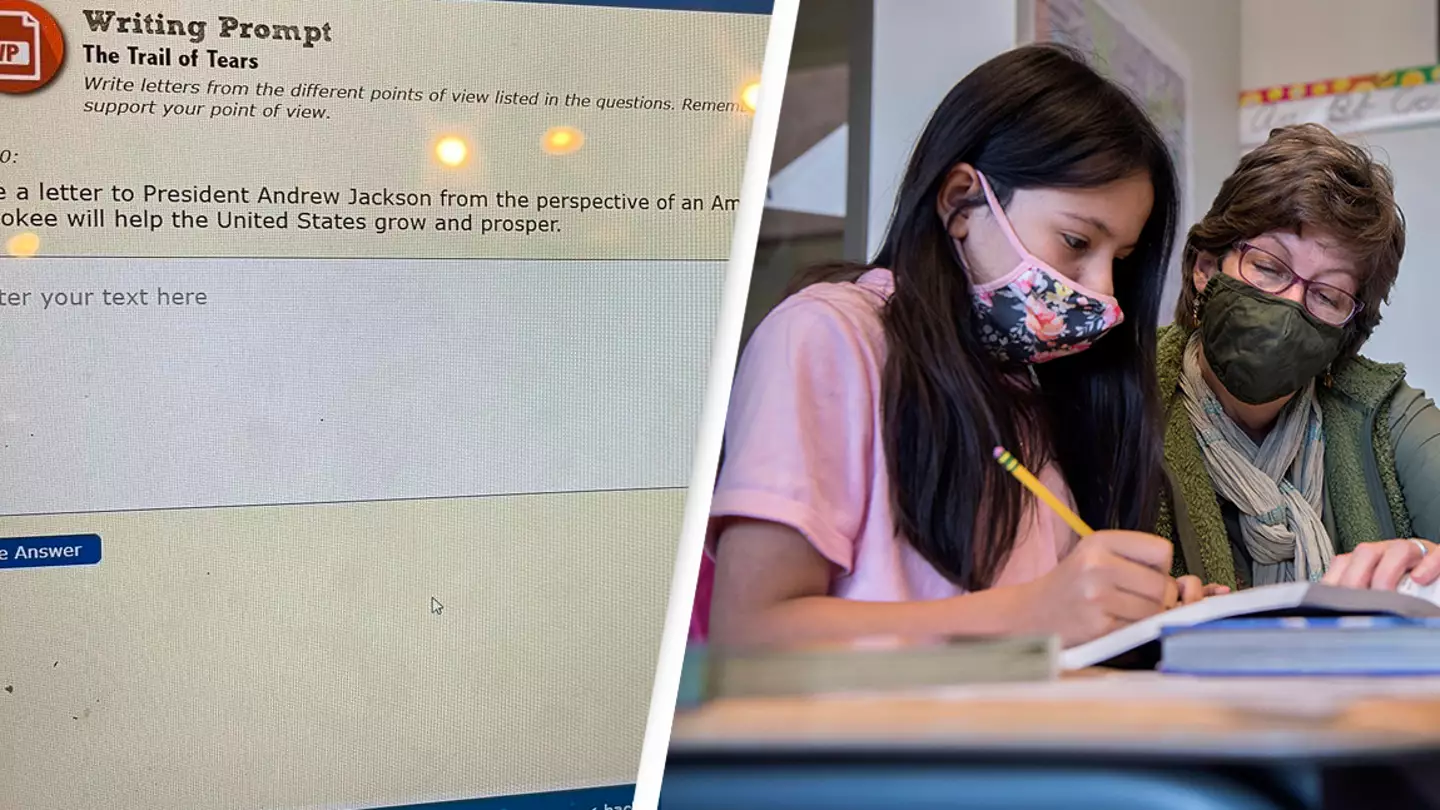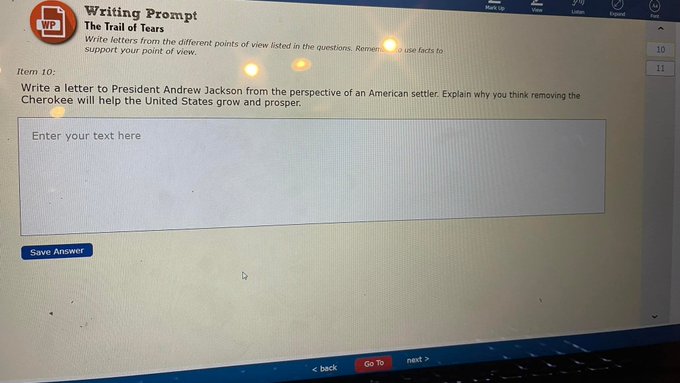

A school in the US state of Georgia has been criticised after asking fourth-grade students to explain why the Trail of Tears helped America 'grow and prosper'.
For a homework assignment, Georgia Cyber Academy asked nine-year-olds to write a letter to then-president Andrew Jackson from the perspective of an American settler, explaining why the removal of the native Cherokee population would help the United States.
Advert
Jackson was the seventh US president, and during his administration he signed the Indian Removal Act, which gave the federal government the power to forcibly relocate thousands of Native Americans westwards away from lands where US citizens wanted to settle.
The forced relocation of the Cherokee saw more than 15,000 people made to travel on foot from their homes to what is now Oklahoma, with more than 4,000 dying during the journey.
The assignment has provoked a debate, with some arguing that the question was asking children to take the side of the American settler and make a case for forcible relocation and genocide.
Advert
Dr Twyla Baker told Native Viewpoint, 'I think I can point to the entire tribal college movement as proof that there are myriad ways to teach history that doesn’t ask marginalized groups of students to "play Devil’s Advocate" or justify genocide on behalf of oppressors.
'There are better ways to teach history that respect the voices and perspectives of everyone involved, and include multiple narratives, because history belongs to all of us. We need to actively dismantle the idea that only one narrative exists.
'Many, many scholars are doing it in classrooms across the country; to do otherwise is intellectually lazy, and disrespects our children, no matter their background.'
However, others argued that writing from the viewpoint of the US settler did not mean agreeing with their point of view, and that understanding a historical perspective well enough to represent it was an important part of learning history.
Advert
They took to social media to argue that children will often be asked to explore the viewpoints of people they don't agree with while learning history, without being asked to adopt the ideas they are being taught about.
Georgia Cyber Academy has not yet responded to requests from Native Viewpoint for comment.
If you have a story you want to tell, send it to UNILAD via [email protected]
Topics: US News
